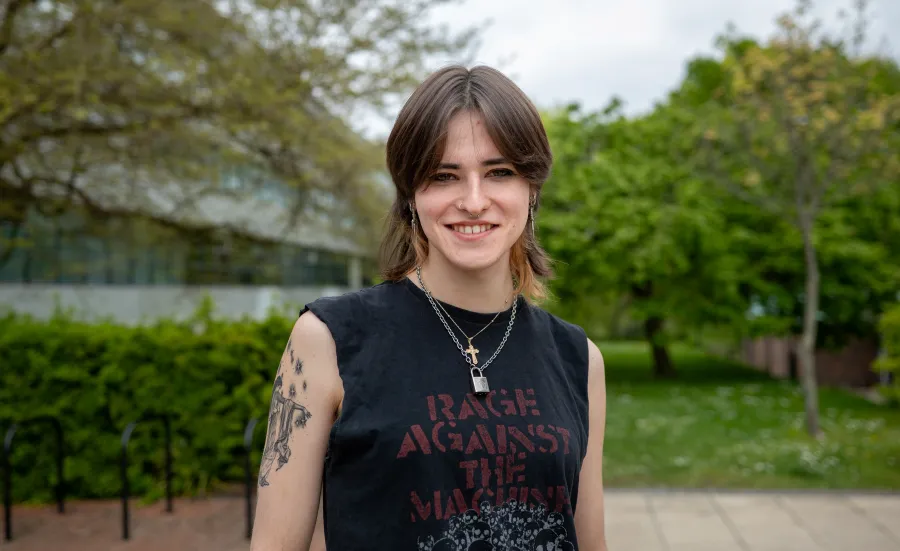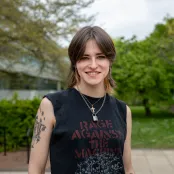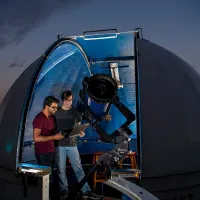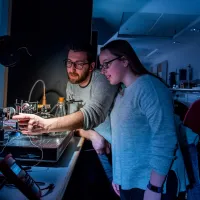Aleksandra talks about the highlight of her MPhys Astrophysics with Year in Research degree - a 2-week field trip to Tenerife.
The Tenerife trip showed me what real astrophysics research is like. I conducted observations and designed a mock space mission with international colleagues and got the opportunity to carry out observations using professional telescopes to see how the brightness of black holes changed over time.
It was a chance for astronomy students to engage with real-world astronomical research, and to see if it’s what they want to do in future. It convinced me that my future lies within astrophysics research.
Using NASA data, supercomputers and a Cambridge placement
I’ve gained an extensive range of experience from summer research placements where I investigated subjects including space plasma science and computational black hole astrophysics.
In my placements, I’ve used data from NASA’s Magnetic Multi-scale Mission to study the Earth's magnetic field. I also used Southampton’s Iridis 5 supercomputer to simulate how light travels through the accretion disc of a black hole.
I carried out a placement at the University of Cambridge’s Institute of Astronomy on galactic archaeology and worked with Southampton’s Mathematics department accelerating Gaussian Processes.
Foraging blueberry galaxies
During my Year in Research, I’m working with Southampton astronomy academics to identify blueberry galaxies in the local universe.
Blueberries are recently discovered, hot, small galaxies that produce a lot of stars. I’ll be using integral field spectroscopy from The Very Large Telescope, in Chile, to carry out this research.
Getting a career head start
I’ve acquired a range of skills including high performance computing, working with data from the most advanced cutting-edge instruments, programming and machine learning.
My dream is to pursue a career in astrophysics research. The opportunities I have taken up with the help of the University have set me up really well for my career. After graduating, I feel confident in my ability to excel in astrophysics.
I’m also committed to encouraging more women into astrophysics. I’ve been on the committee of the Women’s Physics Network in Southampton and worked with the University’s Outreach Team on activities including the mobile planetarium and carrying out art workshops in schools.
Advice for new students
Be open minded to finding and pursuing new interests as you progress through your degree.
Physics is a fascinating subject with many intriguing aspects to it and Southampton will provide a lot of knowledge and opportunities to best identify what you’re interested in.
Aleksandra, MPhys Astrophysics with Year in Research



